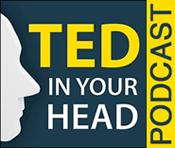Meditation: Is it for You?
“Meditation is a lifelong gift. It’s something you can call on at any time. I think it’s a great thing.” ~Paul McCartney
“At the end of the day, I can end up just totally wacky, because I’ve made mountains out of molehills. With meditation, I can keep them as molehills.“~Ringo Starr. If you are old enough, you know that Paul and Ringo hung out in India with Maharishi Mahesh Yogi, the founder of Transcendental Meditation.
“I’m quite a neurotic thinker, quite an adrenalized person. But after meditation, I felt this beautiful serenity and selfless connection.” ~Russel Brand. He’s kinda wacky. He probably should be meditating or on meds.
“Meditation is all about the pursuit of nothingness. It’s like the ultimate rest. It’s better than the best sleep you’ve ever had. It’s a quieting of the mind. It sharpens everything, especially your appreciation of your surroundings. It keeps life fresh.” ~Hugh Jackman. The Wolverine meditates?
“We all have within us a deep well of creativity, which we can access if we can settle down into those deep, calm places, those serene moments that Transcendental Meditation offers.” ~ That’s Dr.Oz, vice chair and professor of surgery at Columbia University in New York City where he performs more than 300 heart operations a year.
Meditation seems right for some well known celebrities. So it it right for you?
There are many ways to define what meditation is. Most definitions agree that meditation (often referred to as mindfulness practice) is a practice used to bring the mind and body under greater self control for mental well being, relaxation and concentration, building one’s energy or life force, or to foster qualities such as compassion, love and forgiveness.
Meditation has been practiced since antiquity mostly as a part of religious traditions and beliefs. There are meditation practices that involve sitting, standing, walking, moving (such as tai chi) and even dancing.
So why would you want to meditate? I can only give you my opinion as someone who has meditated in the past and who is trying to get back to it as a daily practice.
Most research has been done on the Transcendental Meditation technique with hundreds of studies published. So there are some proven health benefits of meditation: reduced cortisol (the stress hormone), lowered anxiety and depression, reduced insomnia, lower blood pressure and risk of stroke and heart attack, and increased learning ability and memory.
I think the best reason to meditate, in my opinion, is to get to know and be at peace with yourself. The Tibetan word for meditation is “gom” which means “to become familiar with one’s self”. I think that’s important because whatever we can become familiar with, we can become comfortable with.
We are uncomfortable with ourselves when we have thoughts and feelings that create stress, tension and unhappiness. Sometimes it seems that we are at war with ourselves as we deal with conflicting thoughts and feelings about who we are, what we do and the circumstances of our lives.
The reason our thoughts and feelings can create negativity within us is because we identify with our thoughts and feelings. We believe our thoughts and feelings and we become attached to them.
What meditation allows us to do is to observe our inner process and see it for what is is: our inner process, and not who we are.
If you have ever had the experience of telling yourself “I don’t need to let that (person or circumstance) bother me any more” then you know what it feels like to detach from conditioned reactions.
Is meditation right for you? It is if
- you desire more peace of mind
- you desire more control over what you think
- you desire a greater sense of self awareness
- you desire a deeper sense of being present to the experience of your life.
I am not an expert in meditation nor am I a meditation teacher . But I would like to give you a very simple technique that can introduce you to the benefits of meditation. Meditation is a practice, and becomes more powerful if done daily.
- Start with 5 minutes at a time when you can be still and quiet. Sit in a chair with your feet flat on the floor and your hands resting in on your thighs or lap. Do this at a time of day when you don’t feel rushed and won’t be disturbed.
- Focus and become aware of your body: how it feels, what the energy of your body is like, what’s going on inside your body. Just notice.
- Take a few deep, slow breaths and close your eyes.
- Now let your breathing happen by itself and just watch it. Put your attention on your breathing.
- Thoughts will come up. Your mind will drift. You may have feelings. That’s ok. Notice whatever comes up, let it go and go back to your breathing.
- See if you can be aware of the constant parade of thoughts, images and feeling that flow through your mind. You will find yourself getting carried away by your thoughts. Just keep bringing your attention back to your breathing. Some people find it helpful to count breaths to 10 and then start again.
- Don’t get attached to doing it right. The key is not to stop your thoughts or prevent the mind from doing what it does. You just want to observe.
- Do this daily. Try to up it to ten or twenty minutes.
There is much information available about meditation including classes, books and online information. My friend Julia Hilton has an excellent book Basics of Meditation: The First Steps to Changing Your Mind and Your World.
To be able to sit quietly and comfortably with yourself and get familiar with your own mind is an invaluable gift that can be life changing. Consider giving it to yourself.



